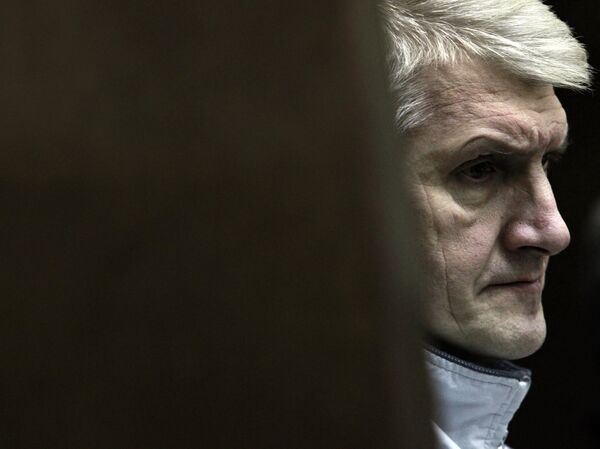The consideration of a request for parole from Platon Lebedev, the business partner and associate of jailed oil tycoon and outspoken Kremlin critic Mikhail Khodorkovsky, will continue on July 27.
Khodorkovsky and Lebedev had been nearing the end of a separate eight-year sentence for fraud and tax evasion after their 2005 trial when they put on trial again. They were then given a further sentence in December 2010, meaning they would have to stay in jail until 2017.
Last month, both men's sentences were reduced by one year.
Lebedev was brought to the prison in Velsk in mid-June. In a character report prepared at the request from the court, which is considered key for the judge to make a decision on early release, the prison authorities described Lebedev negatively.
"Given the above circumstances that he [Lebedev] repeatedly made violations and did not take corrective measures, the colony's administration believes that the convict did not get on the path of improvement, granting parole to him is inappropriate," the prison authorities' representative Anatoly Korsunsky said.
Authorities of a Moscow prison where the former businessman was previously held gave the prisoner a positive reference, describing him as a "polite and calm person."
Lebedev called the character report slander.
The editor-in-chief of opposition Russian newspaper Novaya Gazeta offered a job with his paper to Lebedev at the court parole hearing on Tuesday.
Khodorkovsky and Lebedev have denied all charges against them, claiming that the Yukos case was revenge by Russia's powerful Prime Minister Vladimir Putin for Khodorkovsky's sponsorship of opposition groups in Russia in the early 2000s. The Russian authorities have categorically denied the claim.
Lebedev, who is serving out his prison term near the town of Velsk in Russia's northern Arkhangelsk region, filed an appeal last week against his sentence, described by his lawyer as "unlawful and groundless."
The court refused to consider the previous petitions filed in late May by the two businessmen for their early release, citing a lack of necessary documents.


